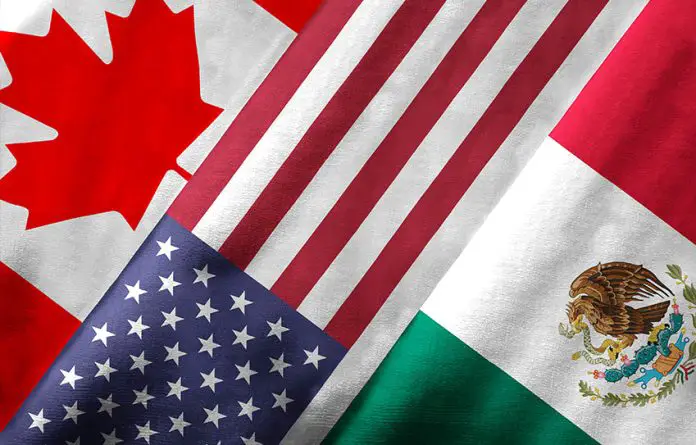The 2024 presidential elections in the United States and Mexico represent a significant opportunity for regional collaboration, specifically in terms of trade and economic competitiveness.
In 2022, the value of trade between the three North American countries totaled well over US $1.7 trillion, and capital investment exceeded $219 billion. In the first half of 2023, Mexico received more than $30 billion in capital investment from the United States.
The outcomes of the election may constitute a continuation of the existing order or, perhaps, mark a turning point. Within a global dynamic of polarization and geopolitical reconfiguration, both countries will decide which direction to take for the coming years.
This is particularly important in terms of trade policy, specifically in the North American region, as it could substantially define the consolidation of this trading bloc as the most competitive and prosperous in the world for the following decades; or on the contrary, put at risk the commercial and economic stability of the region.
Of particular importance for the new administrations in terms of trade and regional relationships will be the USMCA (United States–Mexico–Canada Agreement), specifically its first review which will take place in July 2026.
The USMCA (formerly known as NAFTA, but renegotiated and implemented in 2020), has generated greater trade and investment certainty among the three countries, in addition to establishing mechanisms to resolve trade and labor disputes. This agreement will be subject to an in-depth review, which will undoubtedly open a complex negotiation process.
A challenge during the review process will be avoiding the contamination of the trade agreement with other issues and challenges that the region is facing. Conditioning concessions and trade agreements to commitments of another nature such as migration or security would generate an atmosphere of tension and incorporate additional factors that would make the negotiations even more complicated, with the danger of derailing the talks and putting at risk a future that today looks promising.
For this reason, it will be essential during the electoral campaigns to avoid narratives that attack and denigrate neighboring countries, but on the contrary, highlight constructive and cooperative proposals to strengthen the region and emphasize the importance of regional trade.
There are three key messages that the candidates should commit to in order to send positive messaging to the private sector. They are:
- Upon the start of their respective administrations, begin promoting a meeting of the High-Level Economic Dialogue (HLED), which has been the institutional platform to establish an economic agenda between both countries.
- Ensure the active participation of senior officials from both the United States and Mexico in the CEO Dialogue, to continue the work that has been done by the committees there and maintain the conversation with the private sector, so that the economic agenda can be jointly enriched, with special emphasis on the resilience of the supply chain in strategic sectors.
- Last but not least, respect the rulings of the USMCA dispute settlement panels that are currently working.
The North American region has a great opportunity to consolidate itself as the most prosperous and competitive economic bloc on the planet. The conditions are in place, but politics could prove to be a substantial challenge.
This article was originally published by The Mexico Institute at the The Wilson Center.
Edgar Guillaumin Ireta holds a law degree from the Universidad Latina de América, and a PHD in Public Policies from Anáhuac University, Likewise, he has specialized studies at Stanford University and Harvard Business School. He has published and participated as a political analyst in various media outlets such as Expansión and CNN.
